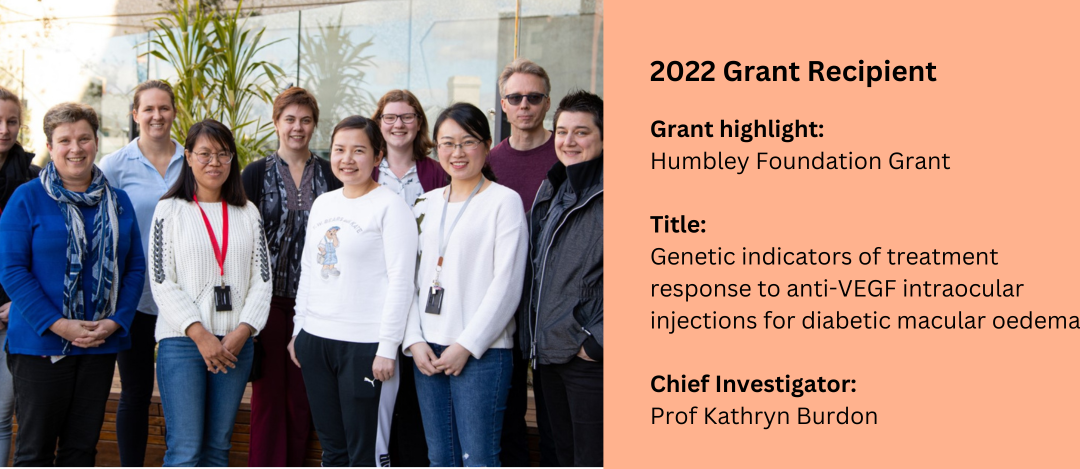Project Title:
Genetic indicators of treatment response to anti-VEGF intraocular injections for diabetic macular oedema
Chief Investigator:
Prof Kathryn Burdon
Co-Investigators:
Clinical Prof Nitin Verma, Dr Rajya Gurung, Clinical Prof Brendan Vote, Dr Bennet McComish
Aim
To identify specific genetic variants involved in the response to treatment of diabetic macular oedema with anti-VEGF drugs.
Methods
We sequenced exomes (all coding genes) in people who responded well to treatment and compared the sequences to people who did not respond to treatment. The data were combined with a genome- wide association study conducted in the same people.
Key results
Several interesting variants in the gene encoding a receptor for VEGF has been identified. Further, evaluation of genes identified in the genome-wide association study conducted in these same patients has highlighted 2 rare variants, both in novel genes that may be associated. Multiple genetic variants are likely to be responsible for an individual’s response to treatment for macular oedema. Additional work is required to confirm the role of variants identified here.
Implications for Clinical Practice/Science and Future Research
The project has moved us closer to understanding the genetics of treatment response and provided several genetic loci requiring follow-up. Other groups have already reached out to us on the basis of our earlier analysis to combine forces for a bigger study. Once these genetic findings are confirmed, they could form part of an individual assessment for each patient to determine the best course of treatment, or to decide to stop using an ineffective treatment earlier. This could save patients from unnecessary eye injections that do not work for everyone.
Lay summary of outcomes
This project has highlighted and specific genetic changes that may help us predict who will benefit from eye injections for diabetic macular oedema and who will not. We continue to analyse the data and combine with other studies to confirm our findings.
This project was sponsored by The Humbley Foundation in 2022

